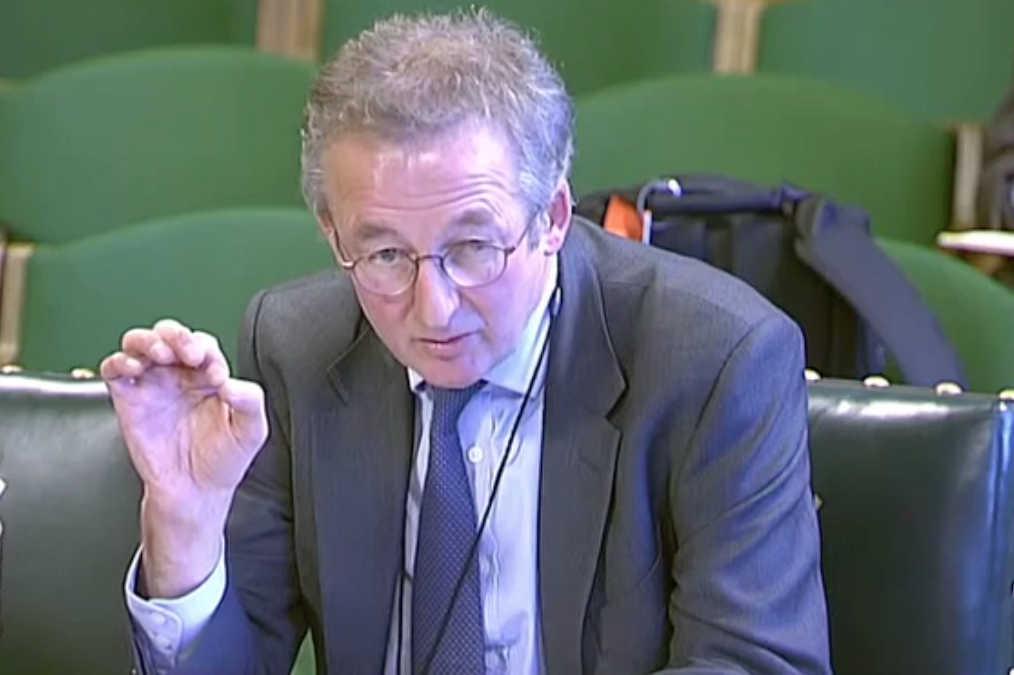Appearing before a committee, which oversees the work of the government's business and energy department in the UK parliament, representatives of three energy and renewables associations criticised Helm's report as philosophically consistent but not based on real-world evidence.
Helm's energy review, published on 25 October, aimed at understanding the costs of energy and bills in relation to meeting the decarbonisation goals of the UK.
The academic looked at all parts of the energy system including the network operators; the UK Treasury, which he blamed for the high costs of renewable schemes; and the government, which he said should be removed from making decisions about the country's low-carbon future.
Nigel Turvey chair of the Energy Networks Association (ENA), Emma Pinchbeck, executive director at trade body RenewableUK, and Jim Watson, the director for the UK energy research centre, commended Helm's understanding of the state of the energy system and the challenges it faced but rejected his conclusions.
They criticised Helm's "radical suggestions" including a new market equivalent firm power auction (EFP) — to enable low-bidding low-carbon technologies to compete on merit in a sector moving towards zero cost margins — and a drastic change to the setup of network operators.
Pinchbeck and Watson rejected Helm's idea to implement his catch-all EFP energy auction, citing international evidence that technologies have developed precisely because of government intervention.
In the UK wind sector, prices have fallen rapidly under the contracts for differences (CfD) auctions.
The argument for allowing onshore wind to compete in future auctions is also growing as prices could potentially fall towards £50/MWh (€56/MWh), Pinchbeck said.
Despite the falling costs in offshore wind, Helm believes "the case of spending X billion [pounds] on offshore wind is open to debate".
But Pinchbeck believes the cost benefits of investment in wind should be seen by 2030.
Bills
Jim Skea from the Committee on Climate Change, admitted there remains confusion as to the high price of energy bills.
"We do not totally understand why bills have not come down more quickly and we would like to look at that again... it needs forensic accounting," Skea told the committee.
Helm's proposals of improving standards and regulations to drive energy efficiency were welcomed by Watson who also agreed, albeit hesitantly that better networks integration can happen.
There remains an ongoing row over the costs of network charges managed by operators who have a "fundamental conflict of interest", according to Helm.
He believes their position is inherently geared towards building more network infrastructure rather than being incentivised to bring in demand-side services and renewables.
ENA's Turvey challenged Helm's assessment, pointing to the ongoing open networks project to redefine the regional network operator and its functions. He warned of Helm's direction of "nodal pricing" which could cause problems of price volatility due to the very regional specificity of Helm's suggestions.
But the other three speakers did agree on Helm's proposals for a unified carbon tax.
The UK has adopted a variety of carbon taxes including its involvement in the EU ETS cap-and-trade mechanism and the carbon price floor which takes the former tax into its calculation, as well as a carbon price implicit in fuel duty tax.
Skea welcomed the universal carbon price highlighted in Helm's report but warned that carbon tax and R&D research investments alone would not get new technologies "through the financial "valley of death," in helping the country decarbonise — a point Helm also agreed with.
"Regardless of what gets decided now, most of what is in the review will be implemented by 2025/2030," Helm said.
In his appearance before the committee, the professor also highlighted the important factor of energy lobbying in the political system, which he believes has driven up the price of energy bills.
Helm rubbished his critics as having "vested interests" and refuted the position that his review was too academic.



.png)

HR.jpeg)
.png)








